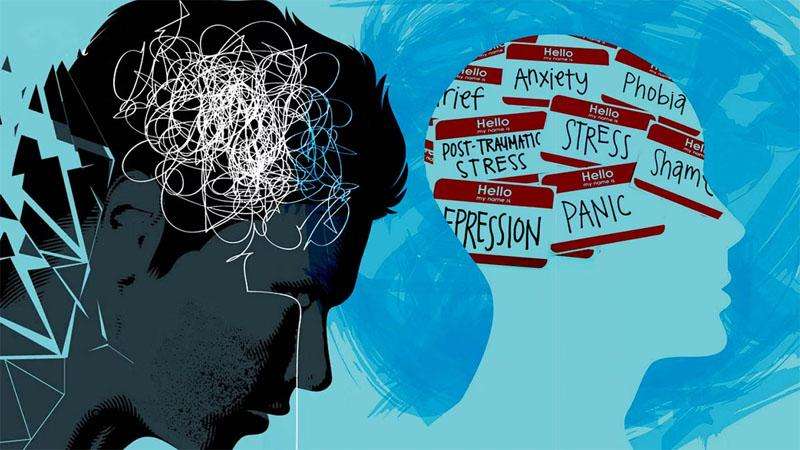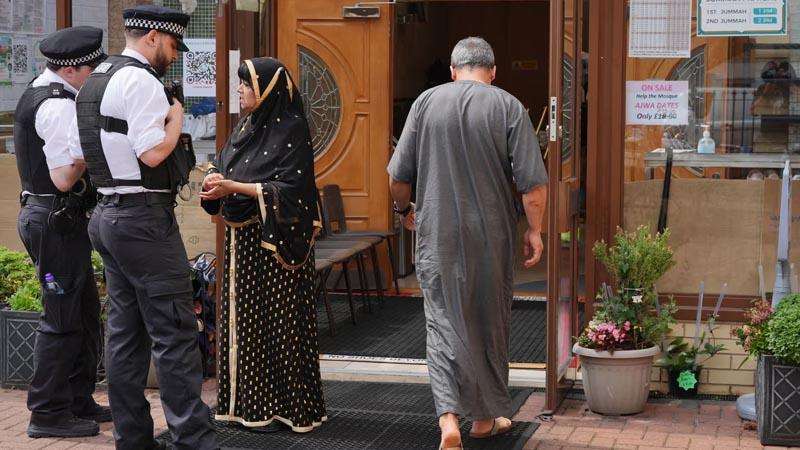Mental health is emerging as a major crisis in Britain's Bangladeshi community. Along with the British Bangladeshis, the Bangladeshis from the country are also suffering from mental crises due to the pressure of shock in immigrant life. Family conflict is a major reason. Daily Dazzling Dawn has found that mental health risks are increasing in the Bangladeshi and British Bangladeshi communities in Britain due to various reasons such as drugs, economic, social, and physical ailments.
The most Bangladeshis in Britain live in Tower Hamlets in East London. 5.8% of Tower Hamlets' 329,000 people accessed mental health services, using the latest population estimates for the area by the Office for National Statistics.
People from BAME communities are more likely to develop mental health problems than white people. For example, Black people are more likely to experience common mental health problems like anxiety and depression, and Black men are more likely to experience psychotic disorders. Older South Asian women are also at risk of suicide.
According to new data, one in every 20 Tower Hamlets residents sought mental health assistance last year. The Mental Health Foundation has warned that the government must "shift gears" or individuals will be stuck on long waiting lists for "overworked and underfunded" facilities.According to the NHS annual mental health bulletin, about 19,115 persons in Tower Hamlets had contact with secondary mental health, learning disabilities, and autism services during the year ending in March. According to the Office for National Statistics' most recent population estimate for Tower Hamlets, 5.8% of the 329,000 residents sought mental health care.
In England, 3.8 million people used mental health services last year, accounting for 6.6% of the population and the highest figure since data began in 2016-17. The findings show a substantial regional disparity, with 7.9% of persons in the North East reported to have used services, compared to 5.5% in the South West.In London, 5.6% accessed mental health care. Alexa Knight, director of England at the Mental Health Foundation, stated, "Far too frequently in the UK, we fail to appropriately support people's health, particularly their mental health, until they've already knocked on their GP's door.In London, 5.6% accessed mental health care.
Alexa Knight, director of England at the Mental Health Foundation, said: "Far too often in the UK, we fail to adequately support people’s health – particularly their mental health - until they’re already knocking on their GP’s door.
in the prevention of poor mental health over the past decade.
"Alongside both the pandemic and cost-of-living crisis pushing more people to experience mental health problems, so it’s no surprise more and more people are needing to seek help from NHS services for their mental health."
She said the Government should make it a priority to restore the Public Health Grant, funding given to local authorities to prevent ill health.
She added: "Without shifting gear, more and more people will be left to struggle for weeks, months and even years on waiting lists for overworked and underfunded mental health services."
Nearly 1.1 million children in England were known to be in contact with mental health services last year, including 3,860 in Tower Hamlets.
Minister for Mental Health, Baroness Merron, said: "I am pleased to see so many more people able to access support from our hard-working NHS mental health services. But too many people are struggling with poor mental health, made worse by the fact that waiting lists for support are far too long."
She added the Government is committed to "giving mental health the attention and focus it needs" by recruiting an additional 8,500 mental health workers to reduce delays and provide faster treatment.
She said: "By providing early intervention in every school and local community, we will take action to stamp out the root causes of mental-ill health and turn the tide on these distressing statistics."

_6.jpg)
_5.jpg)
_6.jpg)
_7.jpg)



.svg)

